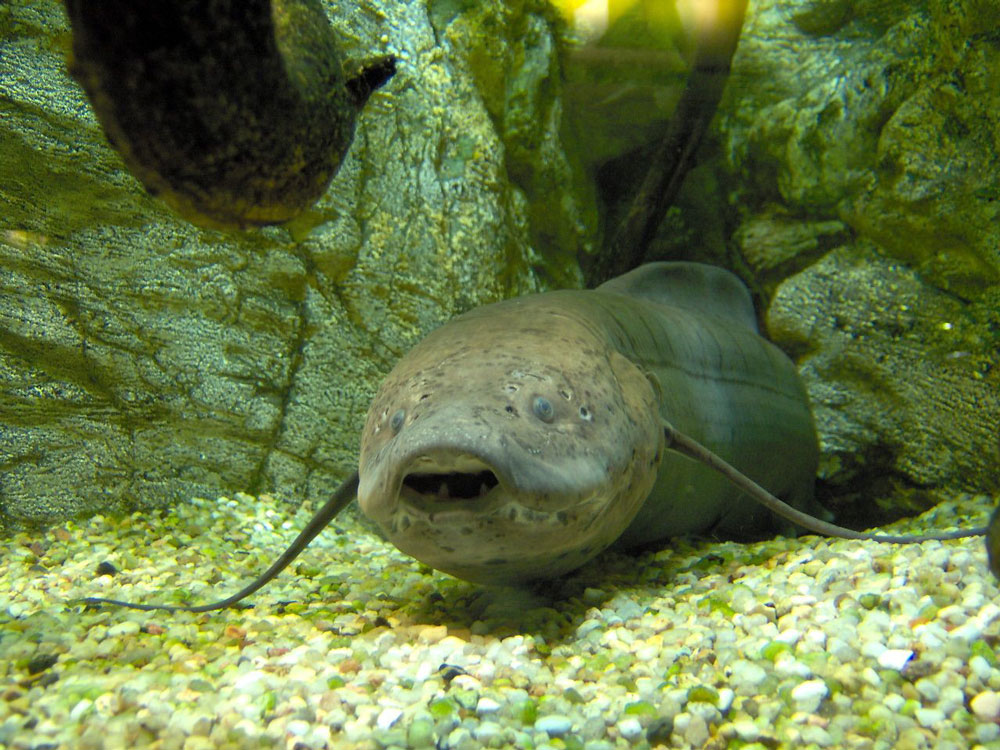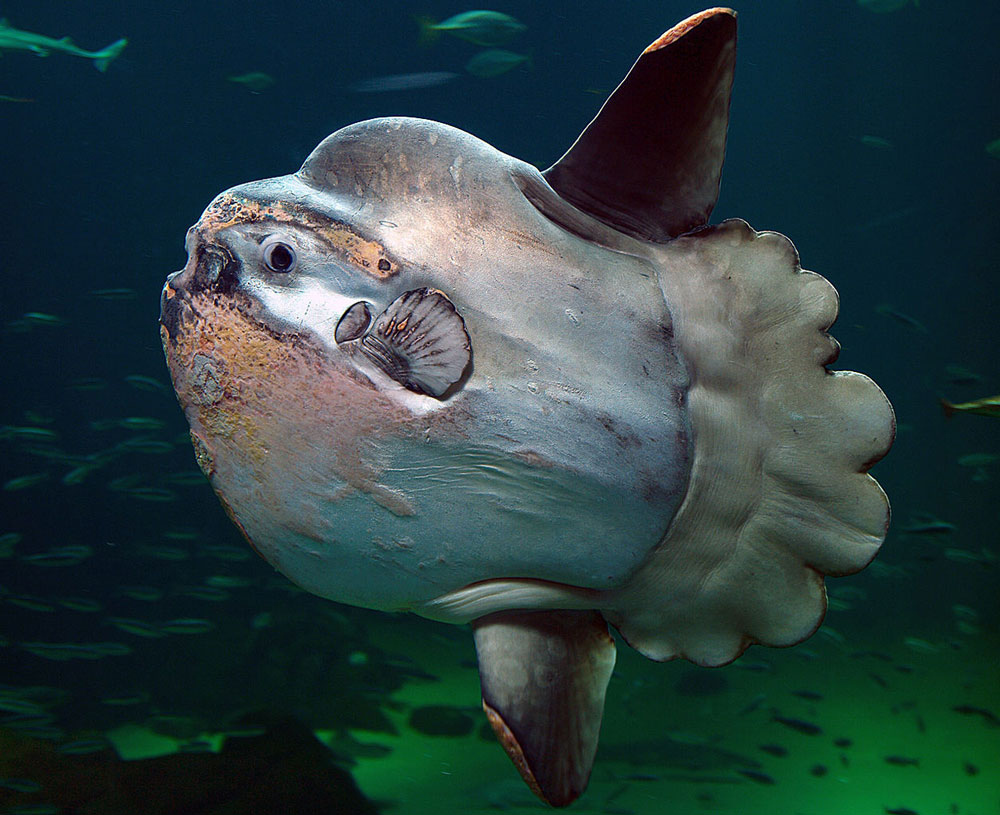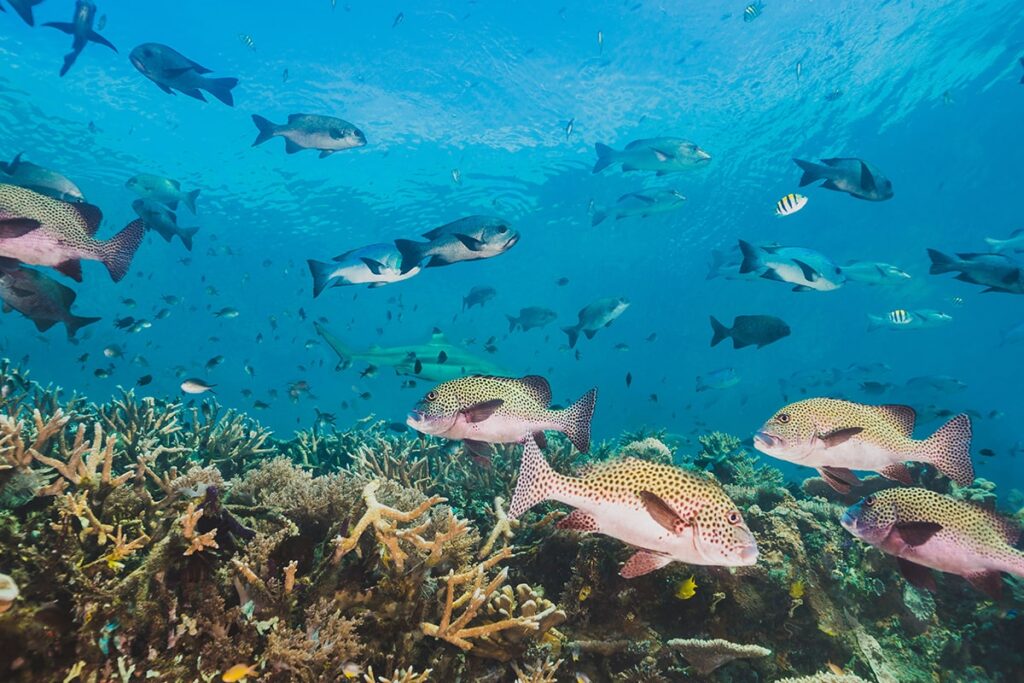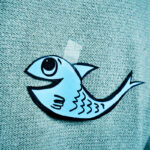- Funny name: There is a species of fish called ‘slippery dick’ (Halichoeres bivittatus)
- Sharks: Sharks kill 12 people a year. Humans kill 11,417 sharks per hour
- Gender: Many fish species change sex during their lifetime
- Going swimming: Some fish – such as sharks – have no air bladder and therefore have to swim to avoid sinking to the bottom
- No urine: Fish don’t urinate (pee) like mammals do; instead, they excrete ammonia into the water via their gills
- Sense of taste: Most fish can taste without opening their mouth
- Poisonous hedgehog fish: One hedgehog fish contains enough poison to kill 30 people
- Lipstick: Some types of lipstick contain fish scales (especially those that make lips shiny or glittery)
- Lateral line: Fish have a special organ called the ‘lateral line organ’ (or ‘lateral line’) that works similar to radar and helps them find their way around in dark or muddy water. It’s also the lateral line organ that ensures fish don’t collide when swimming in schools, for example
- Existence: Fish have been on Earth for more than 450 million years and were there long before the dinosaurs arrived. Mammals have only been on Earth for about 200 million years

Fact: African lungfish can survive on land for up to 2 years, where they hibernate underground and wait for the water level to rise
Records in the world of fish
- Fastest fish: Sailfish can swim at speeds of up to 110 km/h
- Species: There are more than 32,000 species of fish, making fish the most diverse group of all vertebrates. There are more fish species than amphibians, reptiles, birds and mammals combined
- Biggest fish: The world’s largest fish is whale shark (Rhincodon typus) . The largest recorded whale shark was 12.65 meters long and weighed 21.5 tons
- Biggest fish eggs: The world’s largest fish egg was a whale shark egg found in the Gulf of Mexico in the 1950s, measuring 35.6 cm
- Smallest fish: The world’s smallest fish is Paedocypris progenetica, where the smallest recorded specimen was 7.9 mm long. Males reach a maximum length of 9.8 mm and females 10.3 mm
- Oldest fish: Some of the oldest fish include the subspecies Koi (Cyprinus carpio haematopterus) and the genus Kingfish (Sebastes spp.), both of which can live to be over 200 years old
- Most eggs: A female sunfish can spawn up to 300 million eggs in a single spawning season
- First aquarium: In 1853, the world’s first publicly accessible aquarium opened in London, UK. Already in 1856, the second aquarium was opened in New York, USA
- Largest fish fossil: The world’s largest fish fossil was found in England in 2003 and measured a whopping 22 meters! The fossil was the species Leedsichthys problematicus, which lived 150 million years ago

Sunfish can spawn the most eggs of all fish; up to 300 million in one spawning season
More facts about fish
- Swim backwards: Some fish can swim backwards, such as triggerfish (balistidae)
- Land and air: All fish swim, but some can also jump on water, fly and even walk on land
- Lungfish: The African lungfish (Protopterus) can live on land for up to 2 years. They hibernate underground, waiting for the water level to rise
- Freshwater species: 40% of all fish species live in freshwater, even though less than 0.1% of the Earth’s water is freshwater
- Mouth-spawning: The Banggai Cardinal (Pterapogon kauderni) holds both eggs and fry in its mouth until the fry are able to swim on their own. Because this process lasts several weeks, the Banggai Cardinal doesn’t eat anything until the fry hatch
- Cartilage skeletons: Some fish have skeletons made entirely of cartilage (e.g. sharks)
- Senses: Fish can feel pain and stress just like birds, mammals, etc.
- Endangered fish: There are more than 1,000 endangered fish species
- Aquarium water: It wasn’t until 1853 (in London) that it was realized that filtering and oxygenating aquarium water was necessary for fish to survive in it. Before then, all fish were kept outdoors
- Ichthyology: The study of fish is called ‘ichthyology’ and a person who studies fish is called an ‘ichthyologist’





